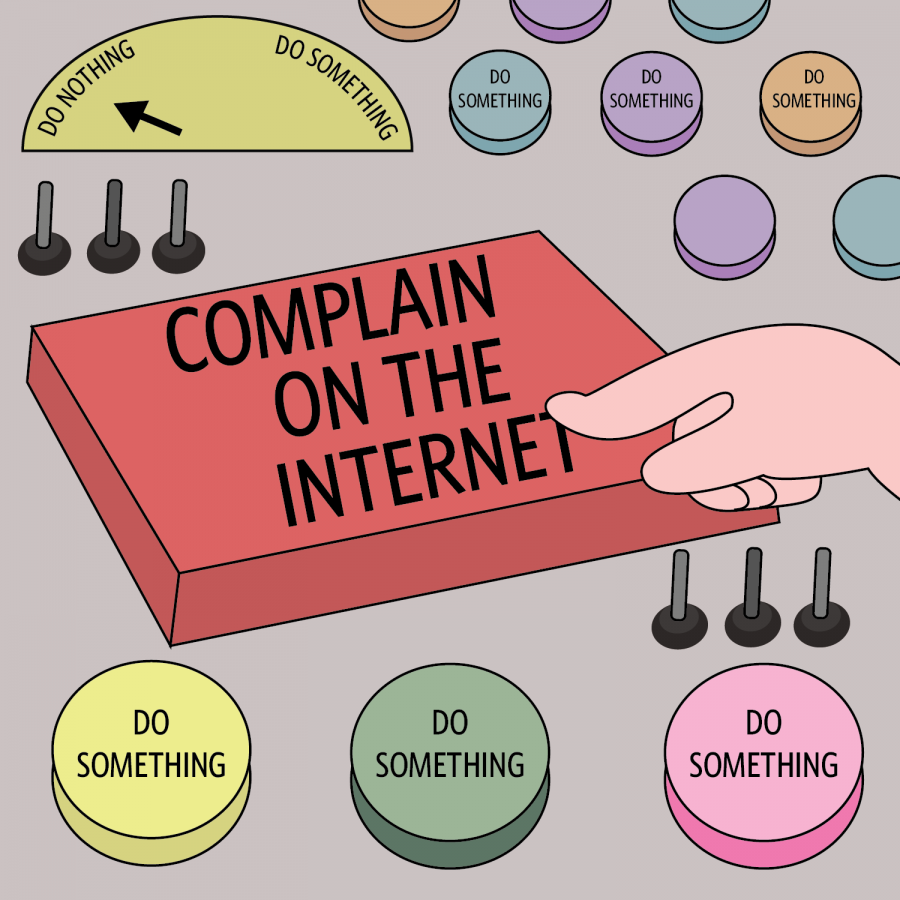Posting on social media doesn’t fix anything
November 27, 2018
With the holidays approaching, the call for acts of kindness and helping others increases. Despite how bleak everything seems, it is important we take this time to focus on what we as individuals can do to help others and spread positivity.
It is not the time for actionless words and tweets. It is not the time to complain.
Social media platforms like Twitter and Facebook are filled with people posting about a problem in the world but rarely doing any action. It’s too easy to scroll down your feed and see people complaining about something or someone instead of being positive.
I even find myself doing this. I share a post about gun reform, women’s rights or anything else I’m passionate about but miss opportunities to do something about it.
On Twitter, people made fun of what Melania Trump wore to the Turkey Pardon. There was nothing political about her outfit, but people online found it funny. It’s fine to laugh, but what is this doing to help the situation? Laughing or complaining about an outfit that has no political or controversial meaning does nothing of substance for political action.
Get The Daily Illini in your inbox!
It is too easy for us to scroll through social media and just share or like a post about some social justice issue but never doing any further research, donating or volunteering. Bringing awareness to an issue is a good step, but it cannot be the only thing we do.
Successful fundraising campaigns like the Ice Bucket Challenge for ALS come to mind in terms of social media. Everyone shared videos of people having ice water poured on them in order to donate and spread awareness of ALS. It motivated us to do more about an issue, and charities should look to this as an example of how to get people motivated. The challenge also led to a breakthrough in ALS research due to the donations. However, we should all be able to do this on our own.
There are many reasons why people may not be inclined to do anything. One reason is the bystander effect, where we assume others will do the work for us. Researchers found that 70 percent of participants who were alone in a room and heard sounds of distress responded quickly, but when participants were put with others and heard sounds of distress, only 7 percent responded.
Many people also donate and contribute to charity work. Some charities ask for small donations too, so we should all try to add something, even if it may not seem like much. If money isn’t something you can spare, there are places around campus to do volunteer work.
RSOs and organizations on campus frequently hold a sale of treats or goods on the quad for a specific cause. There’s also Courage Connection, an organization which allows people to volunteer and help those suffering from domestic violence in the Champaign-Urbana area. Even small kind gestures like buying food for someone in need or helping out a friend never hurts.
If we are going to discuss the negative things going on in the world, then we need to do something about it as well. We cannot assume others will do the good deeds for us. We get what we put out into the world — it might not be possible to solve everything presented, but it’s that same helping hand that makes a world of difference.
Jaime is a junior in LAS.







